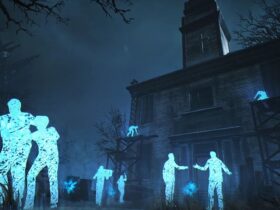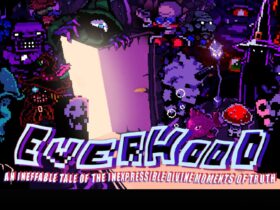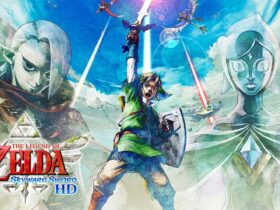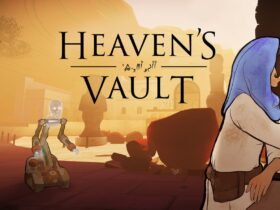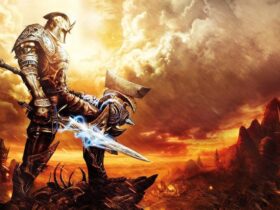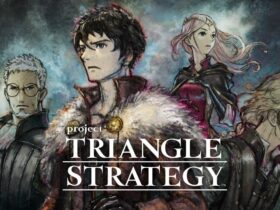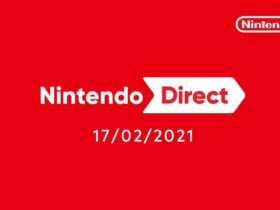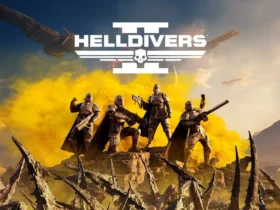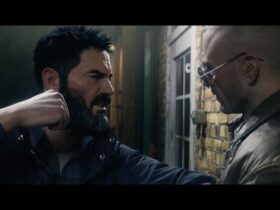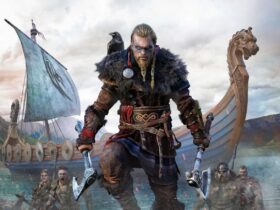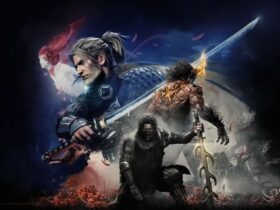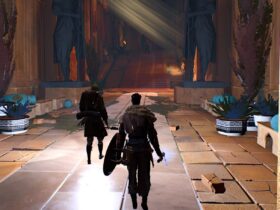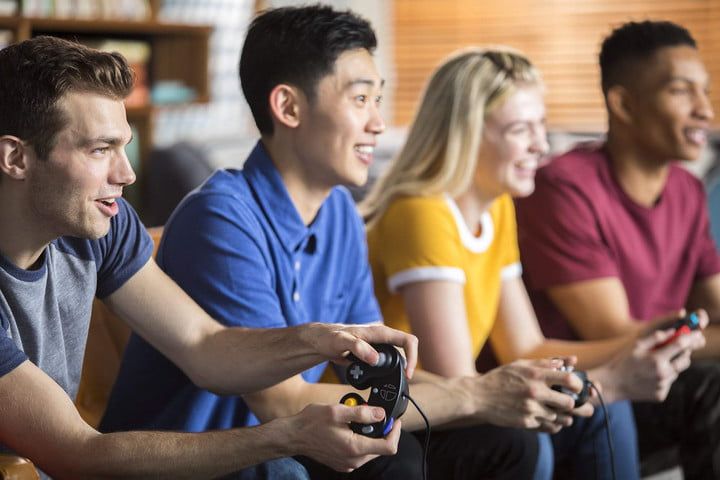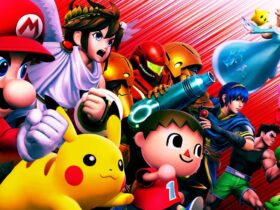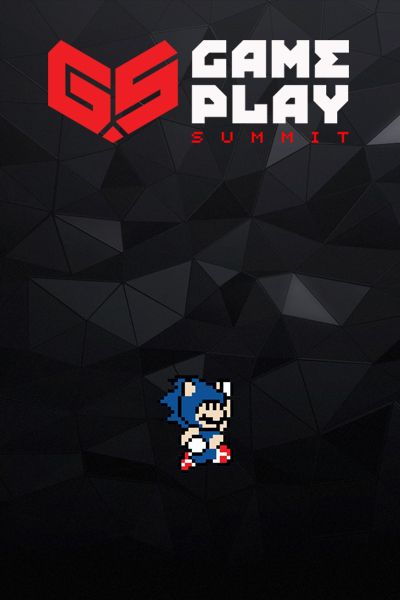The debut of Metagame
On Twitch last weekend, Dec. 11 -13, Travis “Samox” Beauchamp debuted his long-awaited documentary about the competitive Super Smash Bros. Melee scene, Metagame.
Super Smash Bros. Melee is the sequel to Nintendo’s classic platform fighting game, Super Smash Bros. The premise of the game is to knock your opponent out of a fighting arena, called a “stage.” It’s a 2-4 player knockout featuring a cast of iconic Nintendo characters. Melee expanded the character roster of the original, updated the graphics and mechanics, and launched a grassroots esports community due to its surprisingly profound competitive potential and high speed of gameplay.
Metagame’s purview is a specific era of the competitive scene that began in 2009, dubbed “the era of the five gods.” This era featured five dominant players (the five gods: Joseph “Mang0” Marquez, Adam “Armada” Lindgren, Kevin “PPMD” Nanney, Juan “Hungrybox” DeBiedma, and Jason “Mew2King” Zimmerman) and a sixth “godslayer” (William “Leffen” Hjelte) who was the first player to defeat all five of them in competitive play.
In over eight hours split across eight episodes, Metagame narrows down on the careers of Armada and PPMD within the context of the five gods period.
After a series of delays and heightening anticipation, there were a lot of expectations for Metagame. That was a burden that Beauchamp’s first documentary about the Melee scene, The Smash Brothers, didn’t have to carry when it was released in 2013.
The Smash Brothers
The Smash Brothers is a docuseries of nine episodes that tells the story of the scene’s inception and early years up until 2013, focusing on the seven greatest players of that time. This documentary did an excellent job of introducing viewers to the game and its community and describing the playstyles and careers of its top players. It is incredibly entertaining and considered by many to be one of the greatest esports documentaries ever made.
The Smash Brothers had a gigantic impact on the competitive scene, bringing new eyes and competitors to the Melee stage. These new members of the community were labeled “doc kids,” and they brought a second wave of competitive spirit to the game that is still going strong even after the release of three main-entry sequels to Melee. Today, one of these “doc kids,” a player named Zain Naghmi, has a strong claim to be number one in the world, after a series of victorious performances against Melee’s most dominant player of the 2016-2020 years, Hungrybox.
Distribution
The widespread viewership and success of Beauchamp’s first documentary was partly due to its immediate availability on YouTube. On the official YouTube channel for the series, EastPointPictures, the original series accrued over one million views for its first episode and between 300 and 500 thousand views for each of its eight other episodes. A remastered version of the series racked up even more views: one million for its first episode and between 500 and 600 thousand for each of the rest.
Metagame will not be available on YouTube, at least not anytime soon. Besides its free-to-all live viewing last weekend on Twitch, only a portion of the documentary is available right now. On Vimeo, the first three episodes are available for purchase. Each episode can be rented for $3 or bought for $5.
This limited release model, I believe, is because Beauchamp has hopes that the documentary can still be picked up by a streaming platform like Netflix. And since Metagame is a more polished project that spent a longer time in production and accrued greater costs, this does makes sense. Beauchamp wants to recoup those costs and receive compensation for his work, and there’s nothing wrong with that. He spent a lot of time gaining legal permission for the clips and photos that he used so that his series could be more professional and sellable, something that he didn’t do during the production of The Smash Brothers.
Because of its limited release model, I worry that, unless the documentary is picked up by a streaming service, Metagame will not reach as wide an audience as The Smash Brothers.
The Melee scene has always been a fan-run community, and it feels like Beauchamp is leaving behind the down-to-earth feel of his community as he attains a higher production quality. By selling his series rather than making it freely available, he may hurt its chances of reaching an audience beyond the pre-existing Melee scene.
The meta of Metagame
Metagame had a lot to live up to as a sequel, but its ambitions and the story of its development is much different than its predecessor. Beauchamp’s idea for Metagame began as a standalone movie focusing on Armada, just one of the five gods. That scope grew when he decided to include PPMD’s story into his documentary, then ballooned as Beauchamp took on the challenge of documenting the entire era of the five gods.
Metagame’s runtime is about double that of The Smash Brothers, and it struggles to achieve its ambitions under the weight of its lengthiness and massive scope.
The documentary’s promotional material implies that the series is a comprehensive look at each of the five gods. Take, for instance, this narration from the trailer, which also played at the beginning of the first episode:
Years ago, there were five gods. Each god held a different power and fought for dominance against the others. For ages, they battled amongst themselves, until, near the apex of their strength, a force beyond even their own power began to slay them, one by one. When at long last the final battle was fought, the fate of the universe would be forever changed.
From this introduction, it seems that the main narrative of the documentary will be the stories of how each of the five “gods” found their place in the pantheon, and a story about Leffen’s rise to their level of skill.
The title sequence that plays during each episode shows clips of each of the five gods, listing off their names. (Leffen, the godslayer, is not featured in this intro sequence.) This echoes the title sequence for The Smash Brothers, which likewise showed clips of the seven players that were its focus. This makes it seem as if Metagame is an equal telling of each of the five gods’ stories.
But at its core, Metagame is much more concerned about telling the story of Aramada’s and PPMD’s careers. While I don’t like that Beauchamp’s advertisement for his documentary is an inaccurate portrayal of the end-product, I think the focus of the documentary is a good choice for a couple of reasons.
Three among the five
First, while it’s true that the five best players of the documentary’s focus were in a tier high above all other competitors, as of January 2015, Melee‘s ten biggest tournaments were won by Mang0, Armada, and PPMD. These three players were in a separate tier all their own. This meant that Armada and PPMD were two of the biggest winners of the era covered by Beauchamp’s documentary.
Second, while Mang0 and Mew2King had already received episodes all to themselves in The Smash Brothers, Armada and PPMD had yet to receive such a treatment. PPMD and Armada are private individuals who haven’t before been given the opportunity to share their perspectives and stories in a documentary, so I think it was good that we got a focused look at them, complete with in-depth, personal interviews.
Of the three, Mang0’s interviews seemed the most limited. While, again, he was an important part of Beauchamp’s first documentary, I don’t feel that Metagame does justice to his overall dominance during the period it covers.
It was, however, a shame that the three other top competitors of the series (Mew2King, Hungrybox, and Leffen) didn’t get as much screen time. Hungrybox had a short personal interview, but Mew2King and Leffen were not interviewed at all. Mew2King was featured least of all six players.
Visualization of an era
The graphics and art direction of Metagame, including its tournament infographics and gameplay edits, are a huge improvement over The Smash Brothers.
One of the major visual hooks of the documentary is an image that represents each of the five gods with a little neon orb. As Leffen begins to make his come-up, each time he defeats a god for the first time, their orb cracks apart.

Beauchamp took this visual hook a little too far, however. It was a bizarre choice that when Leffen defeats Mang0, his orb doesn’t just crack but explodes and smokes. I have literally no idea why Mang0’s defeat is so much more dramatic than the others. Likewise, it was corny when PPMD’s orb lights back up after he defeats Leffen during the last tournament of the docuseries, Apex 2015.
The monk of North Carolina
Metagame was a dual-protagonist story. But probably the most interesting narrative of the documentary was its biography of PPMD, a Marth and Falco player from North Carolina. PPMD’s attendance at major tournaments was more limited than the top players. This earned him the reputation of a “monk on a mountaintop,” someone who could show up to a major tournament and have a good chance at taking first place, despite his limited availability to hands-on practice with other top players.
Though PPMD’s story is compelling, I found some of Beauchamp’s choices in its retelling a bit off-base. I feel that the documentary over-emphasized his battle with depression. While this is a major part of his story and he battles with depression today (PPMD’s medical problems are the main reason he hasn’t competed at a major tournament since 2016), the introduction to PPMD’s character was heavily focused on his depression.
This seemed like a misstep, as I feel PPMD’s real qualities (his intellect, patience, politeness, etc.) were less emphasized than his depression.
PPMD talks about his relationship with his ex-girlfriend, and the documentary plays this up, using b-roll dream-vision type footage of an actor to represent the unnamed ex-girlfriend in question. There’s certainly no problem with PPMD discussing how his ex impacted his life and career, and it’s fine if that becomes a part of his personal growth and the emotional feel of the scene, but the b-roll footage was awkward and unnecessary.
Exercise is important to PPMD and he uses it to help battle his depression. But the documentary used footage of PPMD running around his neighborhood in excess. This is kind of the theme of Beauchamp’s character studies. He focuses on a few aspects of his subject in trying to create a character that fits into his narrative vision. In the process, Beauchamp makes Melee’s competitive gods one-dimensional, and we don’t quite get to see the full potential of their human side.
Interestingly, though Hungrybox was the competitor with the least interview time of the top players who were interviewed, he comes off as a more nuanced character, rather than a set of stereotypes and character qualities. I think Beauchamp spent too much time and effort forcing a narrative out of PPMD’s story, instead of letting him tell his story.
A Swedish god
Beauchamp’s characterization of Armada was more focused. He is portrayed as a wise, intense, hard-working competitor, just as the Melee community recognizes him to be. He gained a reputation as a ruthless winner in the 2015-2016 years (just beyond Metagame’s scope), but it was interesting to see his perspective during his rise to greatness. Despite his dominant legacy today, the man struggled with a slew of second place finishes and struggled to find motivation at times, even briefly retiring from competition in 2013.
Armada’s story is a story of his family (he has 10 siblings), especially his brothers, who also played the game. One of the most heart-touching moments of the documentary was when Armada revealed that his younger brother, Android, was the reason Armada came back to the game in 2013. Android wanted so badly to travel and compete with his brother in doubles tournaments that he persuaded Armada to return to competitive play. Armada went on to place at least second in almost every major tournament he entered until his final retirement in 2018.
Apex 2015
The climax of the documentary saw PPMD and Armada clash in grand finals of Apex 2015. For many, this tournament was the first live tournament they watched, largely because of the influx of new attention that The Smash Brothers brought to the scene. The tournament was notable for a few reasons and garnered even more attention to Melee’s competition and its storylines.
All five gods and the godslayer, Leffen, attended this tournament. At the time, it was the Melee tournament with the most entrants and largest prize pool. It was the tournament at which Leffen beat the last top-five player on his list, Mew2King. And it featured an iconic money-match between Leffen and Kashan “Chillindude829” Khan that was the climax of a series of public trash talk tweets and a rap diss track.
Apex 2015 was an excellent tournament to end with since it featured a final battle between the two protagonists of the documentary, Armada and PPMD. But as a viewer who follows the scene, knowing this was the last major performance of PPMD’s career struck a melancholy note.
Perspectives
Beauchamp created a documentary based on footage amassed up until the beginning of 2015. His documentary is a representation of the past without the hindsight that a viewer has today.
Beauchamp’s documentary spent a long time in post-production, getting clearance for its video sources and reaching the legal status that Beauchamp’s distribution model required. But because the release of the documentary was delayed so long after editing was finished, the difference in perspectives between a viewer with the benefit of hindsight and Metagame itself was quite noticeable.
The story of Melee is not finished, and perspectives on the game and its players will always change, but there are a lot of valid reasons to disagree with Beauchamp’s interpretation of the era of the five gods, like his choice to make PPMD the main, victorious protagonist of the series, even though Mang0 was more dominant during the era of the five gods, or his decision to not interview Leffen, even though he was arguably the catalyst that was the beginning of the end of the five gods’ dominance.
Beauchamp’s perspective is just one of many potential perspectives, and it doesn’t capture the general feeling of the entire community. Beauchamp himself acknowledges that people can have many different perspectives, even just on this one era. You just can’t capture everything about such an amazingly complicated community that plays such a deep, competitive game.
My criticism of these problems is minor, however, compared to what follows.
Content Warning:
Below, I discuss
- widespread references to sexually violent language and sexual assault
- homophobic language and language that excludes bisexual people
- sexist language and other language that excludes minorities
- ableist comments concerning a hearing disability
- historically charged racism against Japanese people
and I mention
- former members of the community who have engaged in sexual violence, sexual misconduct, and child grooming, though not by name. I’m sorry for mentioning them in this review, but I feel it is necessary to do so in my criticism of Metagame since Metagame itself mentions them. Please be aware that two of the videos hyperlinked below feature the voice and images of at least one of these former community members.
.
.
.
.
.
.
End of Content Warning
PPMD and Mang0
A big part of PPMD’s story in Metagame is his competitive relationship and friendship with Mang0, who acted as a mentor to the North Carolinian. They had a rocky friendship, and their personalities clashed. PPMD is reserved while Mang0 is energetic and can be abrasive in his attempts to be humorous.
In the sections that discussed their relationship, there were moments that included Mang0 using insensitive language, such as calling PPMD “bisexual” in a derogatory way. While discriminatory language was widely used at the time, in Metagame, it only ever comes out of Mang0’s mouth. Mang0, at the time of these statements, was a teenager, and to villainize him without proper context is wrong.
Exposing this confrontation reignites division for the sake of telling PPMD’s story. I think it would have been a more balanced approach if Mang0’s words came with more context. For example, Beauchamp could have simply interviewed Mang0 about his use of discriminatory language at the time. Instead, it comes across as if Mang0 was the only one in the community who spoke in this way.
Mang0’s depiction
Beauchamp responded to criticism of Mang0’s depiction during the second day of his livestream, saying that he thought he had established that the style of humor in Norwalk (Mang0’s hometown) was “asshole-ish” in nature. But the problem isn’t just that “Mang0 looks like an asshole.” Using language that discriminates against others is something that makes you an “asshole,” but it isn’t the same as “being an asshole” for the sake of humor.
Today, Mang0 still has an “asshole-ish” sense of humor without the use (for the most part) of language that marginalizes others. This kind of language was a huge problem in the Melee community, and Beauchamp using it as an example of one of Mang0’s character traits is completely inappropriate. It doesn’t give the problem the weight it deserves.
In fact, Beauchamp’s characterization of Mang0’s personality is dominated by the idea that “he’s an asshole and a partier.” It misses out on his kindness and his dedication to the game and the community. Beauchamp barely mentions that Mang0 started a family during the height of his career and that he raised a child while training for competition. He genuinely cares about the game and although he was irresponsible as a teenager, he matured a lot in a short time.
The purpose of a documentary is to document the past, but context is still important. If you are showing the bad parts of someone, and that person has changed and acknowledged those bad parts, it’s important that you give them an opportunity to apologize. It’s not about giving them absolution. It’s about giving context. And this is especially crucial for Metagame since Beauchamp made the documentary from a place of love, with the intention of advancing the Melee community.
If the purpose of Metagame is to bring more people into our community, it looks like Beauchamp is welcoming the sort of people who don’t mind that we seem to be an unapologetically discriminatory space. It sometimes feels like Beauchamp is creating controversy for its own sake.
Leffen’s invisible redemption
Leffen’s “godslayer” persona was mostly self-created. He was a trash talker by intention, he was boastful, and he made fun of and taunted people that he played against. That sort of energy has always been present in the community and it’s not necessarily a bad thing.
Trash talking is a controversial subject. Some people think it has no space in competition and others think it’s at the core of what makes competition enjoyable. It can be a difficult balance, especially for those who have difficulty reading social cues.
Trash talk should always be fun and safe. It should operate within certain boundaries. You need to respond dynamically as a trash talker. If the person you are trash talking is not into it, you have to know when to back off.
In the past, it’s true that Leffen went beyond the status of “trash talker” and became a bully. This was particularly the case during Leffen’s earliest years in competition, when he was rude and insensitive to others online and in Europe’s tournament scene. Due to these actions, Leffen was banned from competitive Melee for a year when he was nineteen.
Leffen made a genuine apology less than two months after his ban and has transformed and shown his maturation since then. Despite receiving a lot of (in some cases) well-deserved hate, he learned from the experience, humbled up, tuned his trash talk, and came back to Melee as a positive force for its growth.
He remained a “villain,” but that was because both he and the community enjoyed constructing that narrative. Leffen was arrogant and aggressive, though no longer in a mean-spirited way, and he could back up his boasts with tournament results. Leffen quickly rose to the top. People loved to hate him, but they respected his play.
Leffen had value for the competitive scene in his role as a villain. Leffen’s Twitter trash talk is notorious for the part it played in one of Apex 2015’s most important moments, his money match (CW: this video includes the voice and image of at least one former community member) with Chillin. It’s his trash talk and attitude that turns him into a villain, but the fun sort of villain that you like to root against.
In Metagame, Beauchamp told the story of Leffen’s misconduct and ban from competitive Melee, including a story about a time he bullied someone with a hearing disability. He interviewed this person and other prominent members of the European community but did not interview Leffen about his misconduct.
Further mischaracterizations
Beauchamp’s depiction of Leffen’s rise to competitive greatness was also a little strange, particularly his choice of music for the sections that show Leffen winning or performing well.
For the most part, the music of Metagame was top-notch. There was a cool synthesizer vibe to the soundtrack. When a player was having a good run in a tournament, the music galvanized the entire feel of the scene.
But the music choice for Leffen’s star performances seem to ignore the energy and hype that surrounded his ascension to the top six. The music for these sections was ominous in a mournful way.
The five gods will forever be the dominant players of their era. No matter what happens, they’ll always have that. Their era is over, and the five gods will never again have the same victorious streak that they had, but that doesn’t mean that their defeat is something to mourn.
Triumph is triumph. Every player that reaches the top echelon of Melee skill is amazing in their own way, and their skill is worth celebrating. The general feeling that the community had at the time of Leffen’s rise to eminence was not, “Oh no, the gods are dying, and I’m sad.” It was more like, “Who does this guy think he is? Destroy him!” Leffen was fire itself, a chaotic force that quickly rose from relative obscurity to Melee fame.
Leffen’s come-up may have been an impending, dramatic doom for the gods of Melee, but it was much more exciting than it was sad. He was a player who finally could compete at their level and most people in the community were happy about that, no matter what they thought about Leffen’s personality. Beauchamp’s Metagame simply doesn’t capture this feeling.
Instead, Leffen is depicted as an actual, villainous individual instead of the story-book villain he became. In the documentary, Leffen comes off as a hateful, unwanted stain upon the community. He certainly did many horrible, mean-spirited things in the past, but he was and is more than the sum of his flaws.
Displaying the admittedly horrible actions of teenagers, without any nuance or indication that they have grown up and changed, is wrong. Metagame remembers the Leffen that was an ableist bully, but it forgets his important contributions (this is just one of them) as a supportive community figure during the Smash scene’s slew of sexual misconduct scandals (CW: this article mentions some former community members by name) last Summer.
Community response to Metagame
Beauchamp included comments from a teenage Mang0 that were sexist and homophobic, but the documentary did not properly address the problem of discriminatory language that was rife in the community and in many other gaming communities at the time, nor did it interview Mang0 or any other community members about this.
Beauchamp’s depiction of Leffen was similarly flawed. He hangs his nineteen-year-old-and-younger cruelties out to dry, without telling the story of Leffen’s redemption. It’s almost as if Beauchamp forgets that his documentary subjects are people, with complex characters and backgrounds.
I wasn’t the only one to take issue with the way Mang0 and Leffen were depicted in the documentary. Others in the community noticed some of these same issues.
Beauchamp made a tweet after reading the community’s response on Twitter: “I wanted to let you know that I’ve been listening to the complaints and I hear you. Before it goes up on vimeo, I’ll be curtailing the section where Mang0 uses the old gamer language. I’ll be removing the sections with specific Leffen .zip allegations.”
He continued, “It’s not fair to Leffen or Mang0 without more context, especially nowadays and I’m sorry for that.”
I worry that Beauchamp doesn’t completely understand why the community takes issue with his depiction of Mang0 and Leffen and is simply removing these controversial parts from the documentary to stave off criticism. But most of all what worries me is his attitude toward this so-called “gamer language,” and his failure to remove former members of the community from his documentary.
“Gamer language”
“Gamer language” is an embarrassingly inconsiderate euphemism for homophobic, sexist, and other insensitive language that was utterly rampant in gaming communities, including the Smash community, up until recently. While insensitive language is still used in gaming communities and the Smash community, especially in smaller, local, and less public settings, the community has made large improvements in this area nowadays. It’s still there, but at least publicly, language that excludes others has been mostly eradicated from the Melee community.
The discriminatory language was an institutional problem in gaming that led to the exclusion of minority voices. It was a bad habit adopted by the everyday gamer. But just because we, as the Smash community, weren’t the only ones using this language, doesn’t mean that we shouldn’t apologize for it.
I was part of the problem. In high school, I used homophobic language as well. I’m sorry for it. It excludes people and it’s hateful and inappropriate.
I only ever went to a few local tournaments in college and mostly just played with my friends in high school. I’ve never been a prominent member of the Melee community, but I think it’s important for everyone who was a part of that culture of homophobia, sexism, racism, and other forms of discrimination, to admit to it. Making that admission is an important part of creating real change in our community.
It really was the culture, at the time, to speak in this way. Nearly everyone in the gaming community made homophobia and sexism an everyday part of their speech pattern. That doesn’t excuse it, but it’s important to acknowledge that context when we look back at the history of gaming.
In fact, it makes it far worse that it was so prevalent, and that’s why it’s important that we face this issue with the sensitivity and direct action that it deserves.
The Smash community has never answered for its prevalent use of homophobic and sexist language. Most people in the Smash community have a sweep-it-under-the-rug mentality: they will acknowledge that this problem existed when it comes up and will denounce it, but because it is a delicate and embarrassing topic, most have just ignored it in favor of “moving on.”
Many people in the Melee community that used this language have expressed remorse for things they’ve said in the past and the way they’ve acted, but a lot of that remorse has been vague and somewhat private (on personal Twitch streams, or between friends, for instance). Our remorse has never actually culminated in a public, specific apology. Actions speak louder than words, it’s true. But I think it would be healthy for the community to address this culture head on, even if it is something that we’ve mostly left behind.
Words like “gay” and “rape” were widely used in inappropriate contexts in the Smash community, yet we still have never made the time or space to publicly apologize for our words and actions.
A missed opportunity
Metagame could have been the time and space for that. If Beauchamp was going to include instances of so-called “gamer language,” he could have also included a section where community figureheads state their perspective and apologize for excluding so many people with this widespread discrimination.
That the community could have been far more welcoming to others is undeniably true, and though the Melee community is diverse, I believe that the exclusion of minorities in the community is reflected to some degree by our demographics, at least in the fact that the community is a heavily male-dominated space.
Beauchamp’s documentaries, because they are the most powerful voice in the community when it comes to the history of Melee competition, are a canonical representation of our community. As such, Metagame was uniquely placed to publicly address and allow the community to apologize for its toxic culture and its actions and words. Instead, it used “gamer language,” and stories about exclusion, as a tool to construct its narrative, especially regarding the characterization of Mang0 and Leffen.
To depict Mang0 in this way without the context of the discriminatory culture that he had grown up in is to pin this entire culture on a fifteen-year-old, even though the problem was already widespread in the entire, participatory community. And for someone who has matured and become a father since that time and has been an important and largely positive force in the community, it’s simply not justifiable.
Beauchamp’s failure to grow
The Smash Brothers at least attempted to address the discriminatory language people used at the time. But its short treatment of the topic was incredibly problematic. Instead of creating a space where his interviewees could speak seriously on the subject, he inserted a two-minute clip that he called “The Definitive 30 Second Symposium On Gaming Terminology,” complete with circus music.
During this “Symposium,” some members of the community shared valuable insights. But this section of The Smash Brothers is flippant and insensitive, despite its apparent (though insufficient) criticism of the “gaming terminology” that it was discussing. And to call this criticism “definitive” is an insult. It downplays the effects of discrimination on the growth and inclusivity of the Melee community.
Not only that, but the “Symposium” appeared in episode eight of The Smash Brothers, long after at least one interviewee had used the word “rape” in a completely inappropriate context, and after an American player had referred to Japanese players as “Japs.”
In Metagame, and in his Twitter comment, Beauchamp shows that he hasn’t grown much regarding his attitude toward discriminatory language. He doesn’t treat this topic with the respect it deserves. Nowhere is Metagame critical about the use of “gamer language,” and you couldn’t be blamed for thinking that Beauchamp and his documentary are laughing along with it.
If you follow people in the community today, you know that they don’t use language like this anymore, at least not in public. The Melee community has cleaned up its act. But this remains hypocritical and contentious since we have never properly addressed it.
As a community, we NEED to address this problem, even if many see it as a former problem, and the Metagame documentary could have been the perfect place to do this. It’s such a shame and an embarrassment that it wasn’t, and it’s even worse that it didn’t seem to criticize or contextualize the “gamer language” it was documenting.
Especially with the recent disbanding of the Super Smash Bros. Code of Conduct Panel due to a lack of resources, I worry that the community may be losing some of its ability to deal with these issues. With a community that is ever increasing in size, this concerns me.
Censorship
Considering Beauchamp’s enigmatic views toward what he describes as “gamer language,” his decisions regarding censorship in the documentary are bizarre.
I couldn’t tell what position the documentary meant to take on the language it censored, nor could I parse the general purpose of its censorship choices overall. The documentary censored basic vulgar language and some discriminatory language, but in such a way that often the viewer could still hear the beginning and ends of words and understand what was said.
Where a censored word appeared on-screen, a black box would cover the core of the word, but due to context clues and the visible edges of the word, it was still immediately apparent what the word was.
Censorship was inconsistent. While Armada calling Jigglypuff “gay” is bleeped out, Mang0 calling PPMD “bisexual” is not bleeped. It seems to me that Beauchamp takes a selective approach to censorship for the purpose of protecting the perspective of his narrative.
Beauchamp censors some things so that what he chooses to leave uncensored will have a greater effective “shock value.” Beauchamp puts his story’s themes above all else, to the point he doesn’t seem to notice his own bias and inconsistency.
I wish I could end the review here, but there is another problem with Metagame that is worse than anything mentioned above.
Beauchamp’s failure to act
Over the summer, dozens of people came forward with allegations of sexual misconduct against members of the Smash community. These allegations brought to light instances of sexual harassment and violence, child grooming, sex with minors, and rape. During the revelation of these Me Too stories, many prominent members of the Smash community were implicated, including certain commentators and top players. These players either left or were banned from the community.
Before the second day of the Metagame airing, Beauchamp took a Twitter question that asked how difficult it was to remove them from the documentary, since much of the footage that he captured up until 2015 included the voices and images of these former community members. Beauchamp gave an answer that seemed to indicate that it wasn’t too hard and that it didn’t end up affecting the documentary.
That was sadly truer than it should have been; though Beauchamp replaced their interview clips with new interview clips of other community figures, he failed to remove them from other sections of the documentary.
If Beauchamp was going to include them in his documentary, then he should have addressed the issue head-on. If it was impossible to entirely remove them from his narrative (and I find that unlikely), then Beauchamp needed to acknowledge their presence in the documentary, apologize to viewers, denounce their actions, and warn anyone who was directly affected by their actions.
Instead, these former community figures are prominently featured.
Many of them did leave behind an important legacy, and their careers were important to the history of competitive Smash, but that doesn’t mean that they should be included in the documentary without any sensitivity to those who were harmed by them.
At best, it is unclear what attitude Beauchamp’s documentary takes toward these sexual predators. For someone who personally knows and is friends with many members of the Smash community, it doesn’t make sense that Beauchamp wouldn’t have been more concerned about how his inclusion of these predators’ names, images, and voices could have harmed viewers of his documentary. Most of Beauchamp’s audience last weekend are already members of the Smash community and the people of the Smash community are those most harmed by the inclusion of their names, images, and voices. Beauchamp let his community down.
For everyone who knows about what these former community members did, it’s impossible to separate the player from their career or the commentator from their commentary. By showing these people in his documentary, Beauchamp effectively reinvites them into the Smash community, bringing mental anguish upon many of his viewers, some of whom personally underwent traumatic experiences at their hands.
Throughout the viewing of Metagame, Twitch chat would type “redacted” whenever one of these former community members was mentioned or shown on screen. This reaction shows that a large portion of the audience understands that they shouldn’t have been included and were made uncomfortable by their presence in the documentary.
That Beauchamp somehow didn’t anticipate such a reaction is unfortunate, but it does match his cavalier attitude toward “gamer language.” The discriminatory language of the Smash scene is a huge part of the culture that allowed sexual predators to operate within our community.
As Beauchamp goes back to the editing room for Metagame, I would encourage him to think carefully about these problems. Hopefully, he can reshape the documentary into something that is more welcoming to the people in our scene who have already been hurt and marginalized.
These problems are severe, but I believe Metagame can be salvaged. Beauchamp does capture the love that the Melee community has for its game and its people, and the value that the community can have in its members’ lives.
Humans versus gods
The Smash Brothers spent a lot of time focusing on the grassroots nature of Melee’s competitive community. It was an exciting look at the beginnings of a scene that still had a lot of potential for growth, and there were elements of the documentary that invited the viewer to take part in the community and find out for themselves what people find special about it.
Metagame spent far less time focusing on the Melee everyman. It is a documentary that is better described as a service to those already participating in the Melee community or those who already know about Melee’s place in the fighting game community.
What Metagame did achieve, I think, is a personal look at two or three of Melee’s all-time greatest players. It transformed them from gods into humans and invited the viewer to consider their personal thoughts and lives. You get to discover why and how Melee was important to them.
A love of the game
Despite its many problems, Metagame does provide a lot of good entertainment and storytelling. I was overwhelmed with emotion more than a couple of times and it made me happy to see how much the community loves the game of Melee.
Armada’s journey as a competitor is inspiring. Metagame’s encapsulation of his commitment to being the best was a shining success, and an excellent model for anyone to live by. Armada’s mantra – “If you refuse nothing but the best, you will very often get it” – although cliché, is tremendously important in understanding his personality and the greatness he achieved.
PPMD’s climactic win (CW: this video includes the voice and image of at least one former community member) over Armada during Apex 2015 is a powerful statement to end the documentary on. It’s such a wonderful, emotional win. The way he breaks down and doesn’t even get out of his chair: you can just see the exhaustion and all the mental work he put into the game in that moment. His first-place finish in that tournament was a profound example of his mental fortitude and strength as a competitor.
As one interviewee, Kris “Toph” Aldenderfer, puts it, “It’s not possible to figure someone out entirely because people evolve, and people grow.” You connect with people in a deep and powerful way, playing this game, and I think that’s the true metagame that the Melee community plays.
Armada’s final words of the documentary were that “having an impact on other people is more important than winning.” This, coming from a player whose absolute dominance made him nearly synonymous with “winner,” is such an important statement, and a good thing for anyone who wants to compete in this game to hear.
Most of all, the documentary reminded me how much I love the game and how it brings people together. It gets me excited to see where the Smash community will go from here. There is an incredible amount of talent and creativity among the people who play and enjoy Melee.
I appreciate the effort and time that Beauchamp has put into Metagame. He created a deeply flawed but wonderful thing, almost entirely through his own creative power. He did all the writing, editing, filming, and interviewing. And though the ambitious nature of his documentary might have been too much for him, he did make something that will continue to be important and influential in the Melee community.
Though he still has a lot of work to do in the editing room, he should be proud of what he accomplished, and while many in the community disagree with the perspective he took, we have the benefit of hindsight that Beauchamp simply didn’t have.
Final thoughts
I wish Beauchamp had kept his documentary shorter and more focused, instead of trying to encapsulate the entire era of the five gods. I think if he had, he would have been able to release his documentary more quickly and move onto other projects, without exhausting his creative energy to the extent that he has.
Not a completely nuanced perspective, Metagame commits very tightly to Beauchamp’s preferred storylines. In the process, it excludes important context and sensitivities. Despite this, it remains an important interpretation of the era of the five gods.
The Metagame documentary is a problematic and flawed look at the history of Melee’s era of the five gods but is nevertheless a valuable retelling of that story. I hope Beauchamp’s edits will draw out a more nuanced perspective that the entire community can be prouder of.

